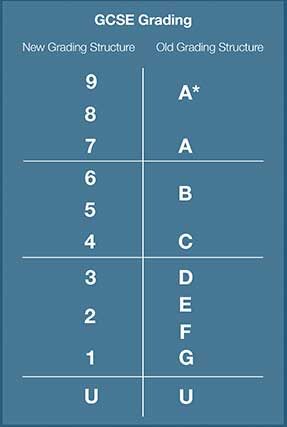Decoding the 2018 school exam results
This summer, students around the world received the results of their May examinations in GCSEs, A Levels, Scottish Highers and the IB Diploma. But recent reforms to A Levels and GCSEs have left parents and employers confused over how to interpret results. We explain all you need to know.

Students had much to celebrate this year with record levels of achievement in GCSEs and Scottish Highers. Despite reforms to GCSEs and A Levels, results still appear to be on an upward trend.Here’s a quick glance at some of the changes:
Reformed ‘gold standard’ GCSEs
- The UK government has reformed GCSEs to raise them to a standard similar to those in Singapore and Finland – widely recognised as the highest-achieving education systems in the world
- Examined at the end of the two-year course rather than throughout the course
- Pupils are forced to study the whole curriculum rather than a narrower part of the syllabus as in the old GCSEs format
- Introduction of more challenging content and much less coursework
- A change to a numerical grading system where 9 is higher than the old A* and shows exceptional achievement (only 4 per cent of grades were awarded a 9 this year) and a 4 is equal to a C (pass)
Understanding the new GCSE numerical grading system

Reformed A Levels
- In England, AS and A Levels have been decoupled so that AS results no longer count towards an A Level
- Examinations are at the end of the two-year course
- Less coursework and fewer practical assessments
- Reduction in the number of subjects available to ensure quality
So, how did pupils perform in 2018?
Reformed GCSE
2018 was the first year that reformed GCSE qualifications were awarded in 23 subjects. Despite concerns of a dip in attainment due to the more challenging content, results were broadly in line with previous years, with an increase in attainment at key grades. Exam regulators have been quick to ensure that this year’s cohort have not been disadvantaged under the new system but this has meant low grade boundaries in some subjects. For example, for one exam board the pass mark in maths (level 4) was 21 per cent. Overall, 67 per cent of pupils passed and the percentage of students achieving both a 7 (an old A grade) and a 4 (an old C grade) increased by 0.5 per cent.
International schools around the world had much to celebrate, including Box Hill in Surrey whose 9-4 (A*–C) pass rate was 20 per cent above the national average despite its non-selective approach to education. Headmaster, Cory Lowde said, “I'm so impressed with these young people – achieving such great results against the background of major changes in the structure of exams whilst also involving themselves with everything else the school has to offer.”
Related articles from the Autumn issue of Relocate magazine:
- Student wellbeing moves to the top of the agenda
- Bilingual education – a competitive advantage
- Paris gets set to welcome more students
Employers recruiting new talent can be reassured when comparing candidates with those under the previous system that exam regulators have enabled fair comparisons to be made and that students have not been disadvantaged. Something new to look out for, however, is the new level 9, which indicates exceptional achievement (higher than an old A*).
IGCSE (International GCSE)
IGCSEs have historically been a popular choice with independent schools since they were introduced in 1988 and were largely chosen because they were seen as similar in style and rigour to the old O Levels, offering a more academically challenging option for the brightest pupils. However, following GCSE reform this is no longer seen as true and the UK government has removed IGCSEs from their performance tables.A spokesperson for Cambridge Assessment International Education – the main provider of the IGCSE – said, “Cambridge IGCSEs are different [to GCSEs], but we align the standard of the Cambridge IGCSE with the GCSE using statistical evidence and comparability studies. Cambridge IGCSEs were a benchmark for the design of the reformed GCSE in England.”An important distinction is that the IGCSE is international rather than UK-centric and draws upon the needs of stakeholders from all over the world, not just in the UK. This has undoubtedly contributed to its popularity around the world.According to ISC Research, which provides data on the international schools market, ten times as many international schools worldwide offer the IGCSE compared to the GCSE. In fact, the Cambridge IGCSE is the world’s most popular international qualification for 14–16 year olds and is taught by schools in 146 countries around the world.At a glance comparison of GCSE and IGCSE
| IGCSE | New reformed GCSE |
| Chosen by many independent schools as the syllabus is regarded as similar to the old O Level. More rigorous and better for higher-ability students. | Recent reforms to the syllabus and grading system mean that the new reformed GCSE has more challenging content and is now seen as better at identifying the most able students. The UK government are calling them ‘Gold standard GCSEs’. |
| Assessment is via written coursework, orals, practical assessment and exams. | Assessment is via a final exam at the end of the two–year course. Coursework has been reduced to an absolute minimum. |
| Although many schools have retained the A* to G system, Cambridge International have seen requests for a 9 to 1 grading system and are now offering this in selected regions. | Grading system is 9 to 1 where level 9 is now higher than an A* and a 4 is equal to an old level C. |
A Level results
Two-thirds of the A Level examinations sat this year were in reformed subjects. Likely due to the more challenging content, the lowest pass rate (A*-E) was recorded since 2010 at 97.6 per cent. The proportion of students receiving an A* grade in 2018 also fell to its lowest level for five years at eight per cent.International schools around the world continued to excel however. At the British School in the Netherlands, over 60 per cent of all grades were A*-B (compared to the UK average of 53 per cent) and students at Kent College Canterbury celebrated almost half of all grades being awarded at A*-A.International Baccalaureate
As the IB celebrates its 50th anniversary this year, pupils across the world received their results ahead of those studying other curricula – in July.The average diploma point score this year was 29.78 of a maximum 45 points. This is down on the 2017 average of 32.03 points. In the UK, it was significantly higher at 34.49 points – similar to the UK average last year.The IB Diploma has been the global education success story of the past few years. From a pilot programme with 12 schools in 12 countries in 1968, to now nearly 5,000 schools teaching at least one of the IB programmes in 150 countries around the world.It has consistently maintained standards, is renowned for developing students with a global mind-set and is well regarded by university admissions officers.Bryan Nixon, head of school at TASIS The American School in England explains the benefits for relocating families. “The IB encourages students to consider and appreciate views they don’t hold themselves. For a relocating family, this will deepen their understanding of global and local issues and help them to flourish in their new environment,” he said.Comparing A Levels and the IB
A Levels are known for developing in-depth subject knowledge and the English National Curriculum (of which A Levels are a part of) still remains the most popular curriculum choice with international schools around the world. For those confused about the differences between the two, this basic comparison table should help.| Reformed A Level | IB Diploma |
| Students take three or four subjects. | Students choose six subjects. A maximum of four to be taken at higher level and the remainder at standard level. |
| Pupils are awarded an A*– E in each subject. | Students are graded from 7 to 1 in each of the six subjects plus an additional three marks from other aspects of the course making a total of 45 points available (equivalent to five A*s at A level). |
| Studied over two years with final examination taken at the end. | Studied over two years with final examination taken at the end. |
| Academically challenging and rigorous – enables a student to develop in-depth knowledge in a subject that interests them. | Demanding workload. Suitable for all-rounders as a broad range of subjects are covered. Compulsory parts of the course such as ‘Theory of Knowledge’ and ‘Creativity, Activity and Service’ (CAS) are also assessed as part of the course. |
Ultimately, families who are relocating need to bear in mind any future moves in the curriculum that they choose. If they are likely to return to their home country following an assignment, the curriculum must enable the child to re-integrate into their home system with ease. This is why curricula such as the UK National Curriculum and the US curriculum remain top choices among many international schools.This article first appeared in the autumn 2018 issue of Relocate magazine.
Subscribe to Relocate Extra, our monthly newsletter, to get all the latest international assignments and global mobility news.
Relocate’s new Global Mobility Toolkit provides free information, practical advice and support for HR, global mobility managers and global teams operating overseas.
 Access hundreds of global services and suppliers in our Online Directory
Access hundreds of global services and suppliers in our Online Directory
©2025 Re:locate magazine, published by Profile Locations, Spray Hill, Hastings Road, Lamberhurst, Kent TN3 8JB. All rights reserved. This publication (or any part thereof) may not be reproduced in any form without the prior written permission of Profile Locations. Profile Locations accepts no liability for the accuracy of the contents or any opinions expressed herein.





































